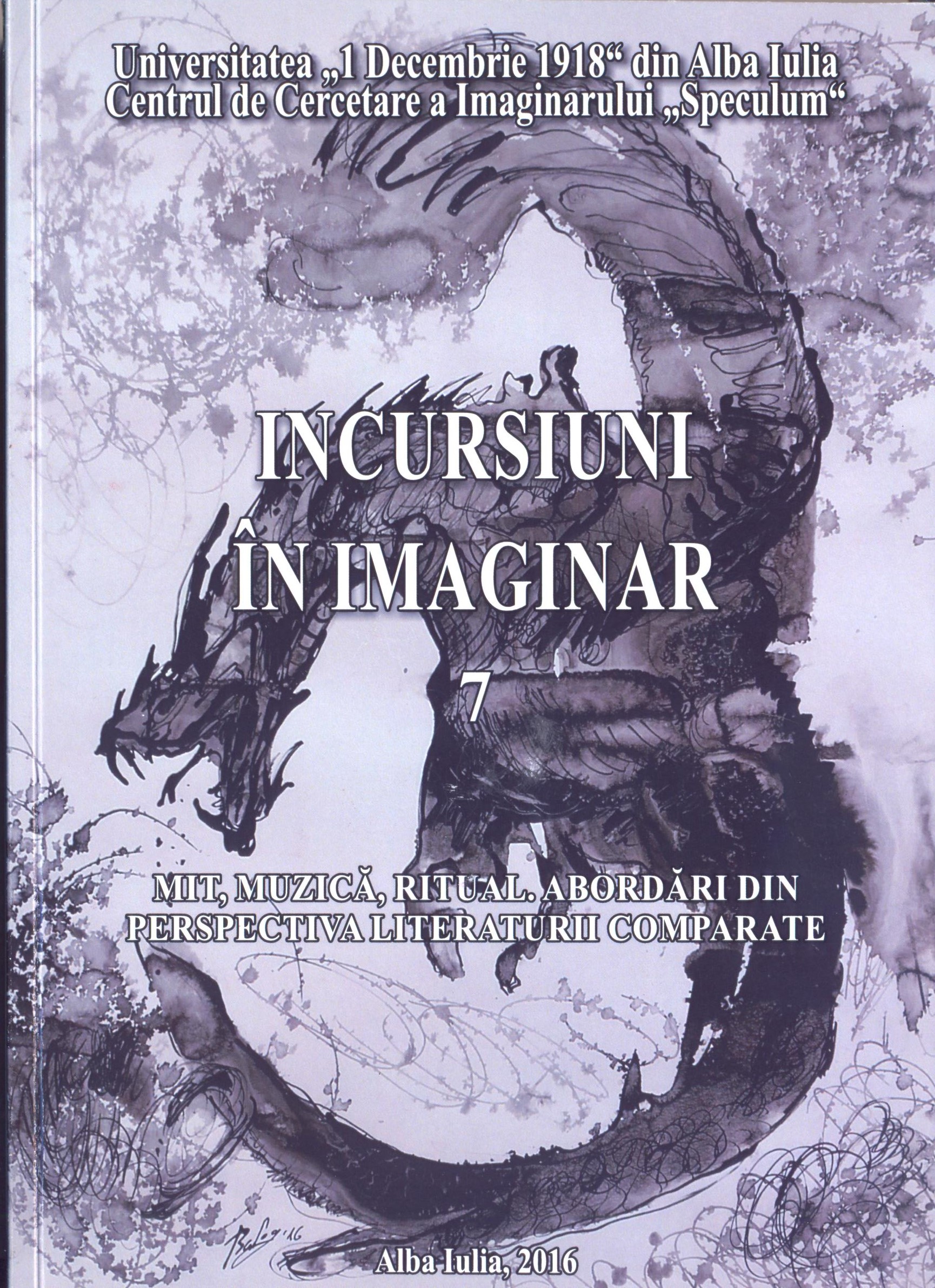ÎNTRE CÂNTEC ȘI DESCÂNTEC. CONSTRUCȚIILE MAGICULUI POETIC. ÎN CURTE LA DIONIS, DE MIRCEA ELIADE
BETWEEN CANTATION AND INCANTATION. THE ARCHITECTURE OF THE MAGICAL POETICS
Author(s): Liliana DanciuSubject(s): Language and Literature Studies
Published by: Editura Aeternitas
Keywords: Dionysos; Phanes; Orfeu; Zalmoxis; poet; muse; magic;
Summary/Abstract: In this study, I submitted to a careful analysis the short story, In the courtyard at Dionis, by Mircea Eliade, which I consider a real ars poetica in prose, where the mythical and magical symbols lead to the same idea of the androgyny poetry possible by restoring the symbolic couple poet-muse, poetry-music. The two protagonists, Leana and Adrian, are the myth-characters, the symbol-characters who send to the primary prototypes of the Sun and the Moon, the Star and the Savior, or the couples Dionysos-Apollo, Gebeleizis-Zalmoxis, as many hypostasis of a primary androgynous gods who know the pain of separation and the polarization in the two opposite sides. By relying on the Romanian legendary background, I consider Leana and Adrian are the Moon and the Son, who, by magical point of view, symbolizes the „impurity” of the Non-Brother (Nefratele), respectively the virginity of the solar creative principle of the Brother (Fratele). The names of the two characters of the story are symbolically loaded and they can be interpreted by anagram and through homophonic and paronyms associations with the names of others deities, from there the behaviour at magical and ritualistic level. For decode the profound meanings hidden in text by the master mystagogue, Eliade, I used the Gnostic scenario, where Leana is the celestial Sophia, lost in the hylic world of his Saviorʹ s pending, to release her from the material. Based on Greek mythology, I related the poet amnesia to the loss of his muse, considering the fact that the muses are the daughters of the goddess of memory. I used an adjustment of the Kabbalistic Sephirothic tree to the magical scheme of the Greek muses, and I identify the music in the material world, the 9th sephira, while Apollo corresponds to the first sephira, Kether (the Crown). To achieve the superior Apollonian world of creative imagination, the poet must go dawn to seek the music. But the music is inaccessible, because he forgot the fanic name, in my view, the name of Phanes, the first of the six primary deities in the Orphic mythology. Just when reach the auroral beginnings of the creation, the poet will unite instantly his muse and will became Vates – the poet-prophet, whose word transforms the man-beast in to a gentle-man, heal and save. DOI: 10.29302/InImag.2016.7.6
Journal: Incursiuni în imaginar
- Issue Year: 1/2016
- Issue No: 7
- Page Range: 115-136
- Page Count: 22
- Language: Romanian

